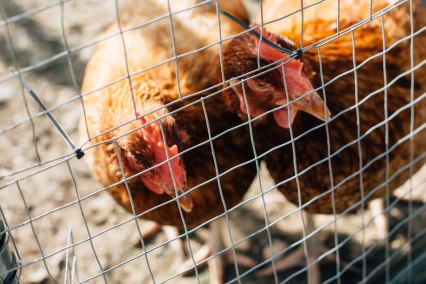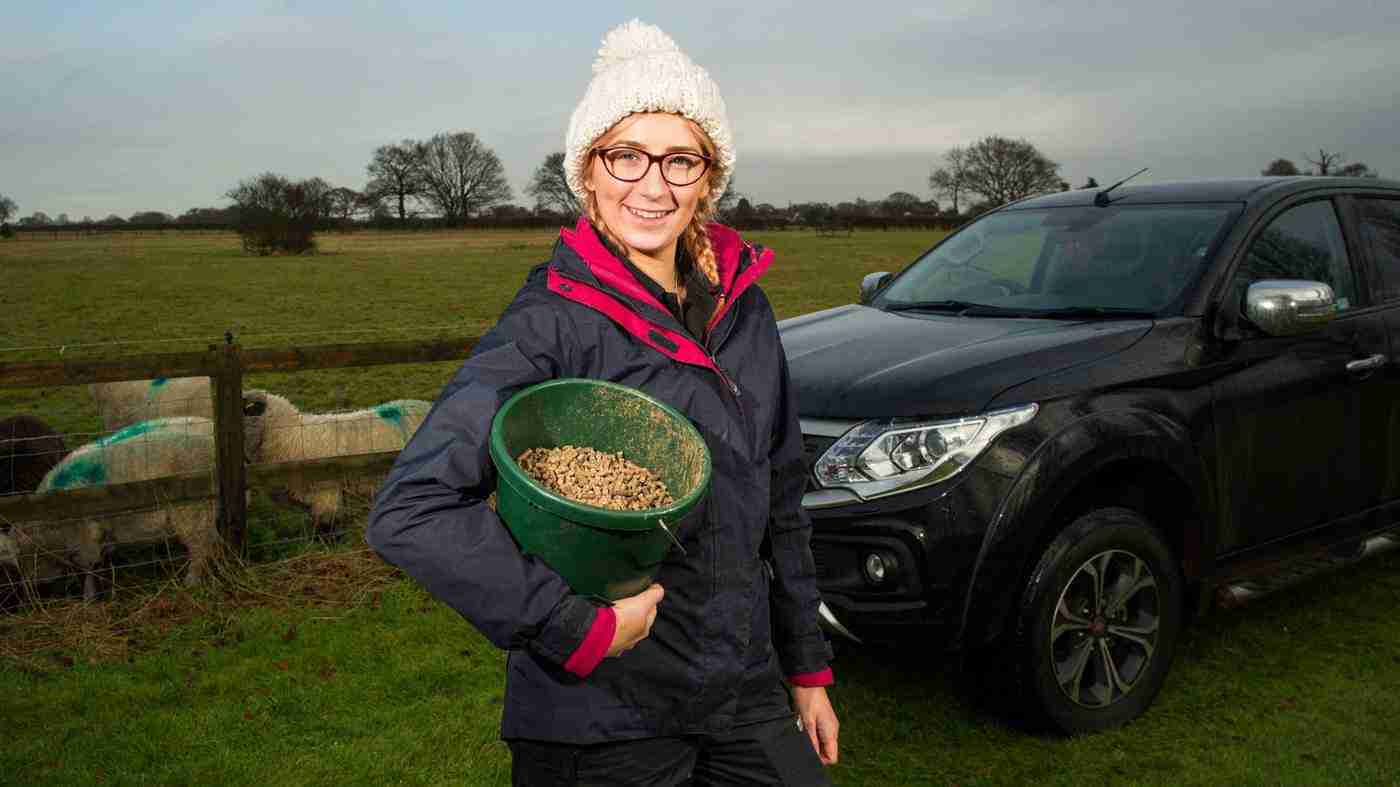It is important when developing your farm business plan, or when thinking about what produce to sell, to decide on who your target customer is going to be.
You may have more than one type of customer. But the chances are you are going to need to decide; who is going to buy your produce so you can determine where you are going to sell it, how you are going to market it, what your brand should focus on, and what prices you are going to achieve.
So to start with, let’s take a look at the different selling establishments available to the average small-scale farmer.
Shops
Firstly, I would put aside the thought of supplying a supermarket. For some reason hitting the supermarket shelves is a goal of certain first-time farmers.
If you are producing small-scale, perhaps specialist produce, you should not be aiming in this direction. Supermarkets traditionally require huge quantities of stock, are slow at paying their suppliers, are often tied into contracts with certain producers and most importantly, they are not going to pay what you require to cover your costs.
Leave this type of shop to the more large-scale farmers (at least until supermarkets develop a local, seasonal aisle – please!) and focus on shops of a different calibre.
Farm shops and village stores are a great way to sell your produce to local customers, without the overheads of running a store yourself. Depending on the store, they may require a monthly fee for your produce to be on their shelves, or they will take a percentage of each sale.
If you are really lucky, you will find a shop that will buy your produce and take on the risk of selling, or not selling, the produce themselves.
In this instance however, you will need to offer a serious discount to such an establishment to make up for the risk they are taking on, and as I mention you will also need to be really lucky to find a shop of this type.
The great thing about farm shops and village stores are their expected rustic appearance, which works well with fresh farm produce.
There are however certain labelling and packaging requirements that will still need to be fulfilled. Your local authority or the government website will be able to guide you, and even the shop owner should be able to offer some advice.
Another reason to use farm shops and village stores is the customer loyalty. Often, local villagers will show a commitment to supporting such a shop and you should soon develop a committed customer base via this portal.
With that being said, you are going to need to commit to keeping the shelves full, so no swanning off on holiday for a month – the customers and shop owner will expect reliable and continuous supply throughout the year.

Restaurants
Restaurants are a great client to have because they usually place large and consistent orders all year round.
Be clear about your limitations up front though – if you are a small operation and you try to fulfil orders that are either too large or problematic for your business, you are going to cause yourself problems.
There are only certain restaurants that will suit your business, so filter out who you are going to approach and ultimately who you are able to supply long-term, prior to sending out price lists and samples.
*I am going to go into depth about this in my next post, so keep an eye on the website.
In summary, your produce being available in small, local restaurants, cafes or pubs, can be a great advertisement to local people and guarantee you a regular, respectable income.
Chefs can be notoriously finicky however and will expect certain packaging, cutting and portion requirements. Listen to their needs and deliver what they require.
You will need to be reliable and they will expect a discount from your standard price-list – a high spending, regular client is not going to come without its problems but this is certainly an avenue I recommend pursuing as a small-scale producer.
Farmers’ markets
I love going to a farmer’s market as a producer. There is a sense of community between the stallholders and you get a great buzz from making a sale.
On the flip side, you can of course attend a market, have a day of non-stop rain and wind, not sell a thing and wish you had never got out of bed in the morning. It isn’t always sunshine and rainbows.
The other negative for some farmers, is the need to be a good communicator and seller. You will be responsible for generating and completing sales and if this doesn’t come naturally to you, I would not recommend going down this route. Otherwise, find someone that can do it for you.
Too often you see stallholders with their arms crossed, avoiding eye contact and seemingly making themselves as unapproachable as possible. These are the same people that then moan about not making a sale all day!
You then have the extremely difficult and laborious task of finding worthwhile farmer’s markets to attend. A huge amount of effort goes in to a farmer attending a farmer’s market: There is the prep of the produce, driving to the market, setting up the stall and then dedicating four hours every Saturday morning to standing outside in the freezing cold.
And you will need to be there EVERY Saturday morning if you want to please customers. My advice would be to first search online for the event to find out if it is well-advertised and therefore easy for customers to find or even stumble upon online.
Then attend as a shopper – was the market easy to find? Was it well advertised as you approached it? Shoppers need to know where the event is or they will simply not come.
It is also important for you to see what other stalls are present too – are there already too many similar products there, or are the products so different that your produce would look out of place or not appeal to the attendees?
Then you need to get an idea of the number of people not just attending the market, but actually buying from the stalls. Some markets, especially those in high street locations, appear busy – however, are the majority of visitors simply passing through, rather than purchasing anything?
If you are impressed by the market and think your business would fit in well with the other stalls, contact the market manager – do they respond quickly, do they ask questions about your stall or are they simply happy to book anyone in?
A market manager needs to be responsive, willing to promote your business and looking to continually improve the event. Check with him/her what is expected of you, what they will supply to you (electricity, table etc) and how the event is promoted.
Successful farmers’ markets have good market managers, are well promoted, are year-round, have consistent stalls, carefully select high quality & local produce, and offer something in addition to the produce available (such as live music, hot food, tea/coffee bar, children’s entertainment).
Check for all of these points prior to booking yourself in to one.
Farmers’ markets do need a large investment of time and you will have to cover your pitch fee prior to making any money. However, if you not only use the market to sell your produce, but also use it to promote your business and improve brand recognition, they can be an extremely worthwhile operation.
Hand out leaflets or put up posters that detail your farm-gate sales or website. You may not make a sale today but with good branding and marketing your presence could lead to a future sales or recommendations.

Farmgate sales
This is the one sale that no-one is going to try and take a bit of money out of, therefore this should be the type of sale that you are aiming for.
That being said, do not think this type of customer arrives problem-free. Do you really want members of the public driving up to your farm seven-days a week, at any hour that they fancy? Are you always going to be in to accept a customer’s request?
You can of course set specific opening days/ times, but nonetheless, advertising your farm address and produce availability will undoubtedly attract customers that have no interest in paying attention to those minor details!
You will also need to be aware of the planning permission needed if you were to turn any outbuildings into a farm shop/collection point of any type.
This is best queried with your local authority before you upset the neighbours with a queue of traffic down the farm lane every Saturday morning.
Personally, I would offer farm collection for phone/ online orders but the complications with overheads and planning for an on-farm shop-like option, as well as unexpected visitors, puts me off advertising farmgate sales to a wider audience.
Think of it more as a collection point that a permanent attraction.
Online sales
No overheads, no visitor issues, no planning permission needed, no rain, no wind, no produce sitting on a shelf going off. Wow, sounds like heaven, right? Correct, welcome to the 21st century and the world of online shopping.
Ok, so there are downsides to online sales. Firstly, the world of online grocery shopping is completely flooded – there are competitors everywhere, so you are going to need to stand out.
Also, if you make a sale, something like Paypal, Visa, Shopify or Wix is going to want a cut of it for providing the ability for you to process card details remotely.
Lastly, it is more difficult for you to put your story across than you would in person, when manning a farmer’s market stall for instance.
With all those points considered however, you really should be tapping in to the online market if you are producing farm fresh produce to be proud of.
Even social media sites are now offering the option to add a shop, these are free sites that automatically advertise your business to all of the friends of people that follow your page.
Like everything these days, you can put money into it and get better exposure, but the general page is free and with locally focused groups, supportive friends/ family and events such as #smallbusinesssaturday, you can spread the word without huge expense!
Even if you simply use these sites to direct people to your website, to the farmer’s market you are attending or to your farm gate, it is worth spending some time promoting your business on the world wide web.
Make sure you keep your website updated and that you post regularly on social media – this will make your business more attractive to those that come across it and will improve your chances of generating a sale.

I hope this has given you an idea of where you can sell your produce and who you can sell your produce to.
Of course this is not an exhaustive list, it is just a list of what I personally have experience with and have been recommended from other farmers.
Similarly, some portals have more success with certain products and I certainly wouldn’t advise against trying any of the above. Find out what works for you, but be clear of the commitment required prior to signing up.
Good luck with your produce!
Speak soon
Katie x

